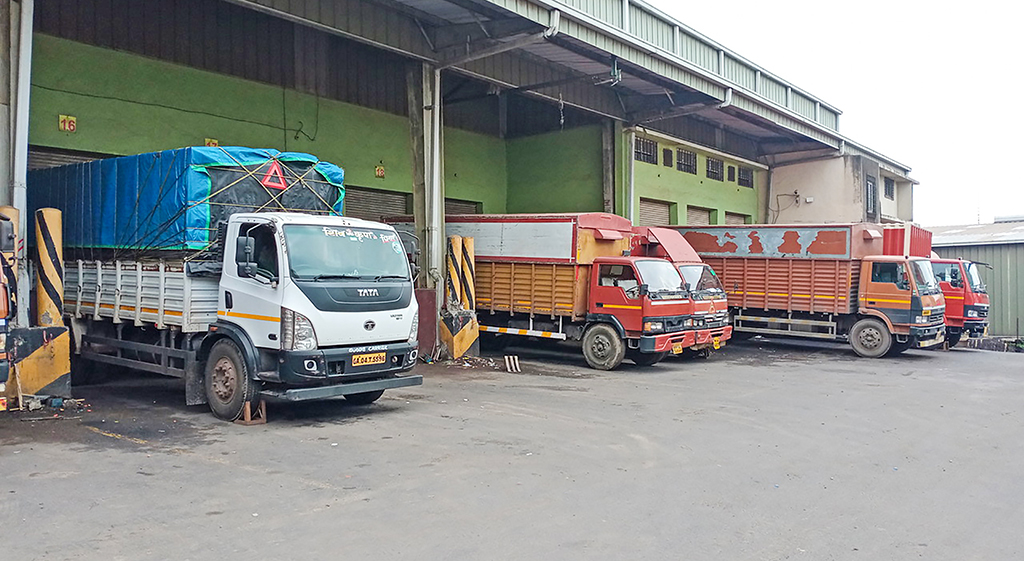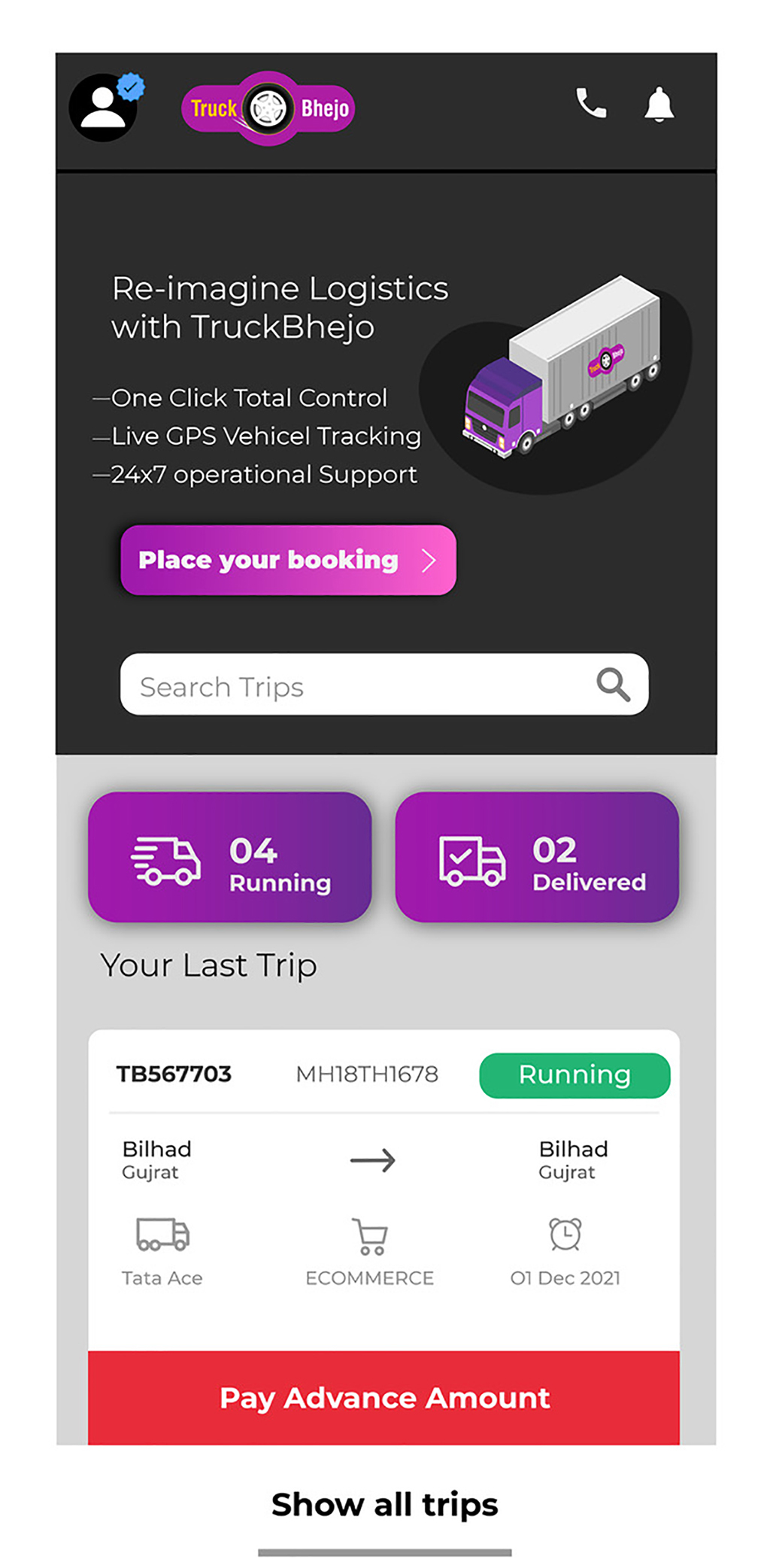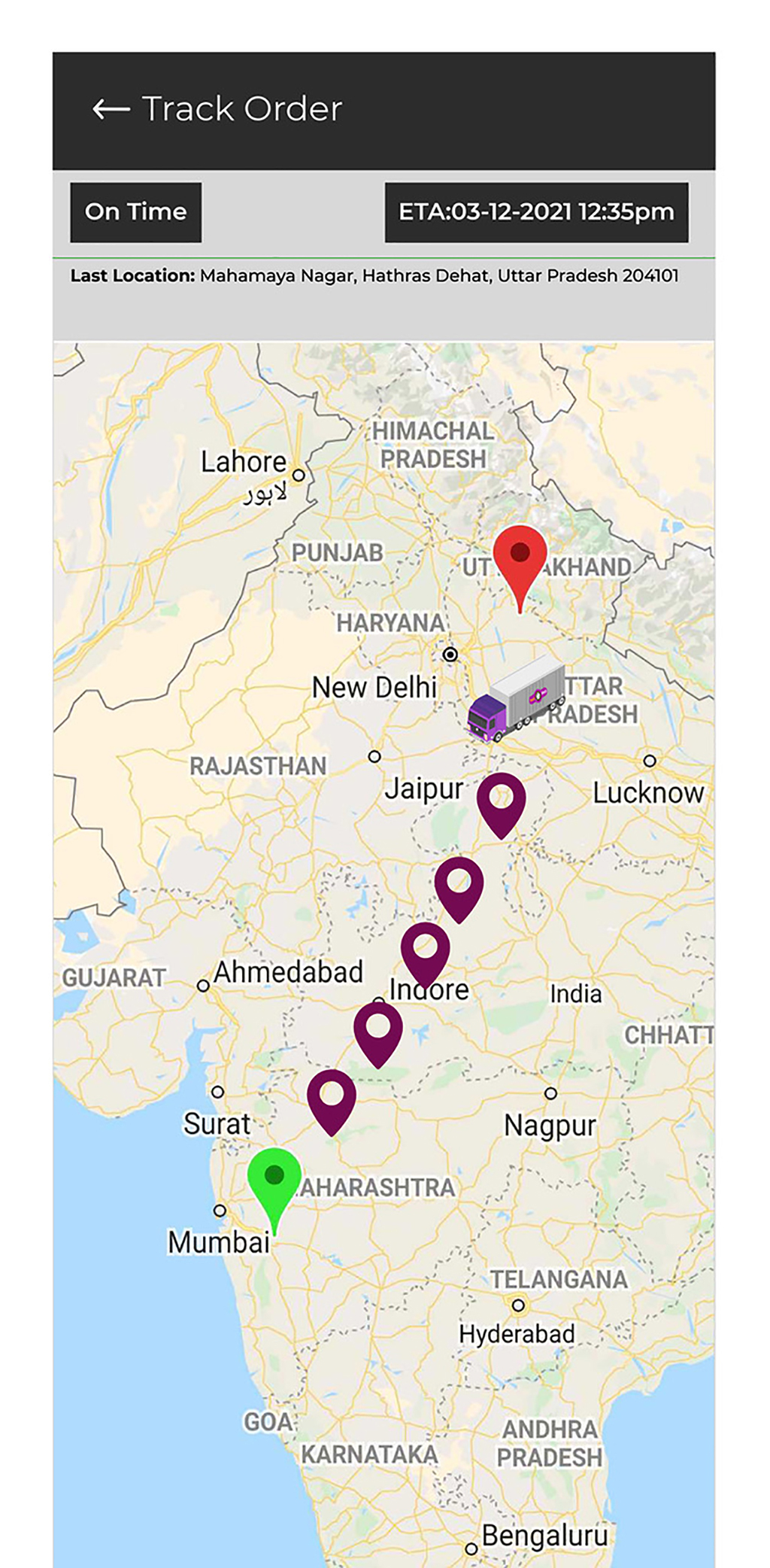
TruckBhejo, a technology-led logistics company, has been providing highly efficient services in the trucking sector, offering customised and affordable solutions across all the three delivery miles with a network of 3,000+ vehicles. Rajesh Rajgor gets the details in an exclusive interview with Nilesh Ghule, Co-Founder and CEO, TruckBhejo

In the logistics industry, just as one size does not fit all, various customers have diverse needs. By incorporating openness and accountability into the logistics ecosystem, TruckBhejo, a tech-enabled firm, is bridging this supply chain gap. Says Co-Founder and CEO Nilesh Ghule, “Our powerful technology platform enables real-time tracking, an end-to-end interface for all stakeholders, flexibility in truckloads to shippers and visibility in the company, thus leading to improved capacity planning for fleets. All stakeholders (customers, vendors, and internal teams) at TruckBhejo have their own mobile apps, allowing them to take advantage of the network’s smart, sustainable and scalable capabilities. All of this adds up to more convenience, enhanced operational efficiencies, cost reduction, transparency and certainty.”
TruckBhejo’s attempts to bring value to their clients’ businesses and create a one-of-a-kind experience set them apart from the rest of the supply chain industry. For example, TruckBhejo was able to set up an all-night secondary distribution operation for a prominent FMCG company across Maharashtra in a relatively short period of time. As a result, the company was able to provide on-time deliveries, customer satisfaction and eventually a long-term connection with Truckbhejo. “In another case, we successfully delivered 50,000+ items per month for an e-commerce giant using a fleet of delivery trucks, allowing it to fulfil a jump in demand over the holiday season. Another example is how, during the pandemic, we used vehicles ranging from 19 feet and 32 feet containers to 40 feet trailers for a major engineering and construction company, ensuring that the job was completed on time,” says Nilesh.

Using Data for Logistics Growth
Today, business agility is aided by technology. Deliveries that were previously mapped to pin codes are now being geo-located with the precision of building names. “We have shifted the delivery timings that were updated based on days to the accuracy of time slots, and we now offer express deliveries that provide minute-by-minute updates. The logistics industry is no longer just about getting items from point A to point B. The customer experience is now the company’s principal product. Greater convenience, increased operational efficiencies, cost optimization, transparency and certainty are all gradually becoming by-products,” shares Nilesh.
The logistics industry has been able to adapt to modern imperatives such as constant innovation, customer-centricity and agility to the availability of advanced technologies. The previous several months have shown that if the businesses do not adopt an advanced technical strategy, the weight of old techniques may prevent us from reaping the benefits of technology. The logistics industry of the future will be driven by data analytics. In terms of supply chain visibility, data analytics enables real-time tracking of items and machinery. One can control and monitor vehicles and keep track of shipments from the manufacturing process to the last mile delivery of goods. Then there’s analysis that predicts the future.

“Companies may now examine and analyse machine behaviour patterns, which allows them to spot irregularities. This means that businesses can utilise predictive analysis to better notice and respond to events such as weather fluctuations. For tracking and preventive vehicle maintenance, logistics solution providers will use diagnostic data from vehicles. Finally, in terms of route optimization, collecting data from various sources results in a large amount of data,” Nilesh points out. Everything from GPS to weather, fleet information, and delivery dates goes into the system, which is then utilised to determine the best route for the vehicle.
Ask him about the company’s growth during the course of the ongoing pandemic and Nilesh replies: “The pandemic has brought with it new difficulties as well as possibilities. In terms of pure growth metrics, we have increased our top-line by about 20% over the previous year, which is a great achievement given the difficulties individuals have had with many firms closing down. Logistics had to deal with a slew of issues. We have an average gross margin of 10-12 per cent, and that is our entire financial success.”
Business Model
Up to 80% of India’s overall logistics spend goes to the unorganised sector, with trucking being the largest of the segment comprising 85 per cent of fleet owners having 5-20 trucks. This presents significant opportunities for organised players such as TruckBhejo as three major challenges in the industry, namely, multivendor interface, geographical dependencies and a lack of integration, present opportunities for technology-led solutions and innovative delivery models that can connect supply and demand with smart tools.

“On the basis of the foregoing, we built a platform that provides end-to-end solutions for all three delivery miles. TruckBhejo provides technology-driven services to B2B clients in a variety of industries. We serve brands such as HUL, Nestle, Jio, Amazon and others in the FMCG, e-commerce, e-grocery, manufacturing, telecom and retail sectors. We have shipped over 2 million tonnes and fulfilled over 1 million deliveries in just five years. Annual contracts are drawn up for delivering road transportation for a set fee or price across the three delivery miles, i.e. first, middle and last miles. We provide a variety of pricing models according to the needs of the client, such as on a fixed dedicated basis or on a per trip basis,” informs, Nilesh.
With over 3,000 active trucks on its network, TruckBhejo now has a presence in over 40 cities throughout seven states. The company has worked tirelessly with truck drivers to secure their safety and security. This has given owner-drivers a sense of accomplishment. “Thoughtful benefits that meet the real needs of the driver, such as term insurance for all drivers regardless of their tenure with us, long-lasting gifts such as clothing over food during the festivals, as well as offering them visibility in business and improving their income cycle, have all contributed to improving their social quotient,” he says.
The company that has been in a developmental period for the past five years is now starting the expansion phase. Nilesh says, “We have raised Rs 1.6 crore in equity and Rs 3.75 crore in debt (total of USD 0.7 million) from angel investors. To help us scale quickly, we wish to increase our capabilities so that we may expand into new places, extend our pan-India network, and offer our services to the SME and MSME sectors. Large B2B companies as well as SME and MSME businesses are of particular interest to us. There is a broader ecosystem in the works. There are about 65 million SME players or medium-sized businesses in the United States and the number will continue to grow as the government implements more regulations. “TruckBhejo is gradually focusing on the medium firm sector, which has a presence in two to three states, with a maximum of 10 states,” concludes Nilesh.